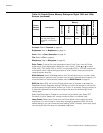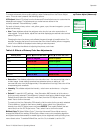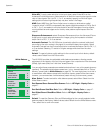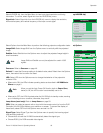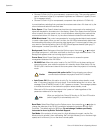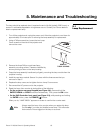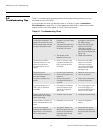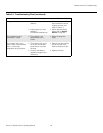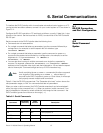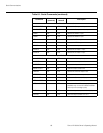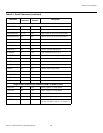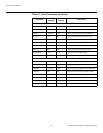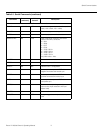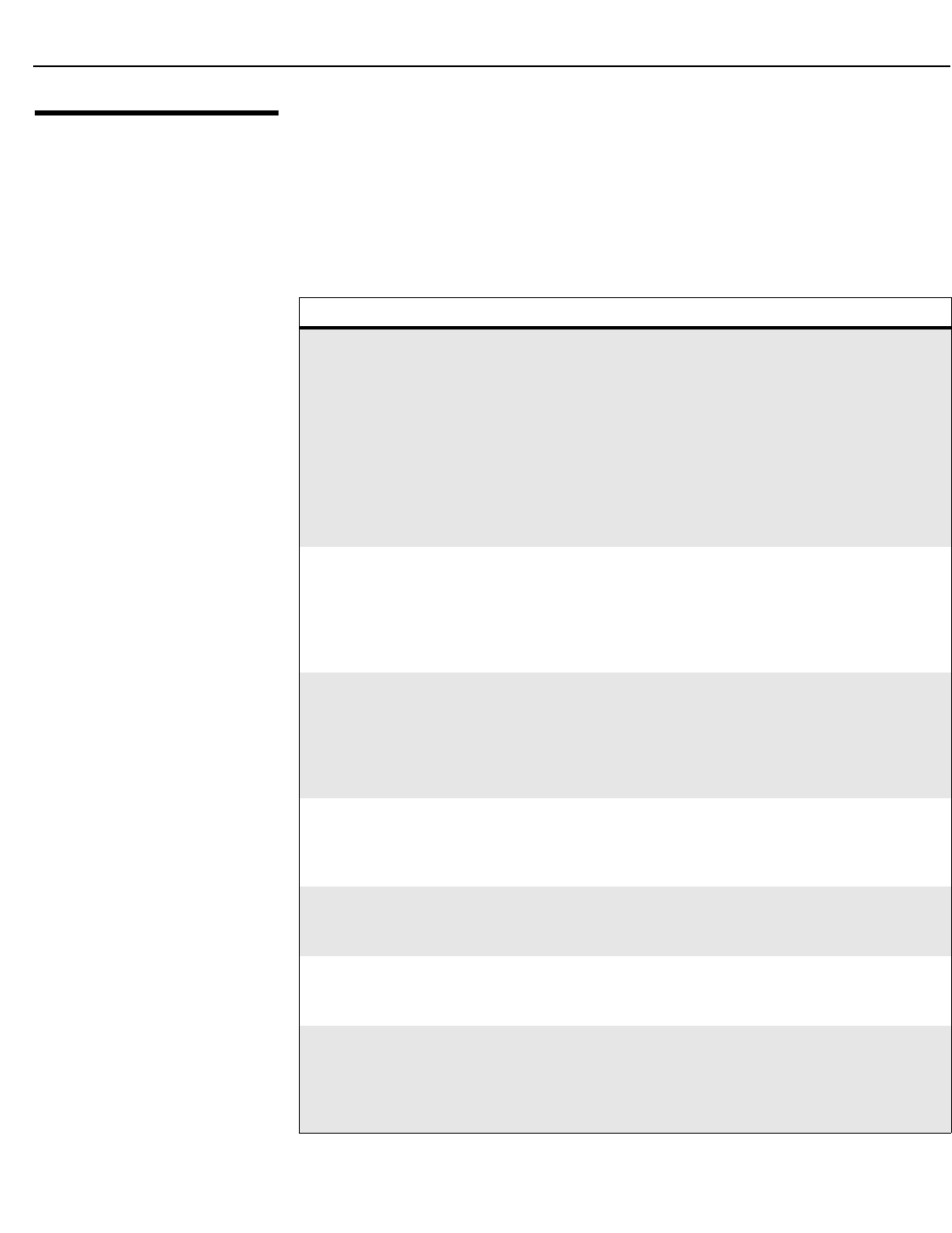
Maintenance and Troubleshooting
64 Runco VX-2000d Owner’s Operating Manual
PRE
L
IMINAR
Y
5.2
Troubleshooting Tips
Table 5-1 provides some general guidelines for troubleshooting problems you may
encounter with the VX-2000d.
If you encounter an issue not described here or in Section 3 (refer to Installation
Considerations on page 20), or if the suggested solutions fail to resolve the problem,
please contact your Runco dealer or Runco Technical Support.
Table 5-1. Troubleshooting Chart
Symptom Possible Cause(s) Solution
The projector does not turn
on after initial installation. The
power LED on the front of the
DHD Controller lights red after
you press the power button.
• The VX-2000d is not
plugged in or the AC outlet
is not active.
• The serial connection from
the DHD Controller to the
VX-2000d is incorrect.
•The remote control
batteries have run out.
• Ensure that the VX-2000d
is plugged in and that the
AC outlet is active.
• Ensure that the RS-232
output from the DHD
Controller is properly
connected to the RS-232C
port on the VX-2000d (see
Figure 3-6).
• Replace the batteries.
The projector and DHD
Controller are both on, but
there is no picture and
on-screen menus do not
appear.
• Faulty or incorrect video
connection between the
DHD Controller and the
VX-2000d.
• Ensure that the HDMI
output from the DHD
Controller is properly
connected to the HDMI
input on the VX-2000d
(see
Figure 3-6).
The projector and
DHD
Controller are both on
and menus appear
on-screen, but there is no
picture.
• Incorrect source selection.
• Source component is not
turned on.
• Source component is
connected incorrectly or
not at all.
• Select the correct source.
• Turn on the source.
• Check video connections
to source component.
A projected image from a
DVD is split or otherwise
scrambled.
• DVD player is connected
to the Component input
and set to progressive
scan mode.
• Turn off progressive scan
on the DVD player. Or,
connect the DVD player to
the HD1 or HD2 input.
Image is too bright and/or
lacks definition in the bright
areas of the image.
• Contrast is set too high. • Lower the contrast setting.
Image appears “washed out”
and/or dark areas appear too
bright.
• Brightness is set too high. • Lower the brightness
setting.
Colors in the image are
swapped (for example, reds
appear blue or vice versa) on
one or more sources.
• The Red/Pr, Green/Y or
Blue/Pb outputs from the
source are connected to
the wrong inputs on the
DHD Controller.
• Ensure that the source
outputs are connected to
the correct DHD Controller
input.



